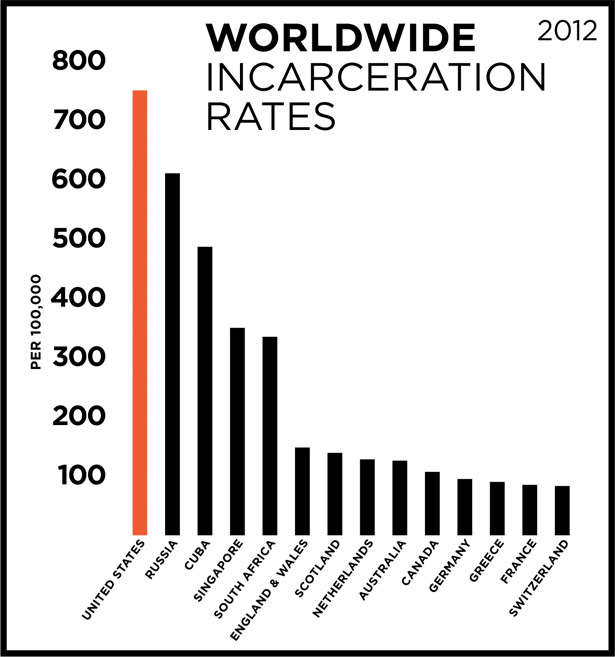Back in 1987, the Equal Employment Opportunity Commission declared that blanket bans on hiring people with criminal records were a Civil Rights Act violation. The EEOC noted that the law bars not only overt bias based on protected categories like race, but also seemingly neutral policies that have the effect of reinforcing racial disparities So it told employers that they can consider criminal records only as one factor in hiring, and then only when the conviction is directly related to the work. But Congress is most responsible for undermining this guidance. Following 9/11, lawmakers issued blanket bans on former felons working in a broad range of transportation jobs. States followed suit, and the list of banned occupations grew exponentially: private security guards, nursing home aides, just about any job involving kids. Former felons are now categorically barred from working in more than 800 occupations because of laws and licensing rules, one study estimates.
Partly in reaction to this growing list, and partly in response to the simultaneous explosion of the background check industry, the EEOC issued an updated guidance in 2012. The new guidance didn’t change the core idea—that blanket hiring bans based on criminal records have a disproportionate impact on black and Latino workers and thus violate the Civil Rights Act; instead, it offered employers updated details on how to stay on the right side of the law. In sum: if you conduct background checks, your hiring systems must include a granular method of confirming their accuracy and considering the specifics of a person’s case. The experience Rivera describes is just the sort that would not pass muster.
This summer, the EEOC showed its willingness to enforce those rules. In June, the watchdog filed separate suits against BMW and Dollar General. BMW’s subcontracted hiring firm had imposed a blanket ban that not only affected new hires but led to the firing of many longtime employees. In Dollar General’s case, one of the plaintiffs had been denied work because of a six-year-old conviction, which drew the EEOC’s scrutiny not only because the practice is illegal, but also because the woman had previously worked for a different retailer in the same type of job without incident. “That’s huge,” says Maurice Emsellem of the National Employment Law Project. “The guidance is one thing, but all this activity surrounding the guidance—that shows they’re enforcing it.”
If so, the EEOC has got its work cut out for it. There’s no firm number on the population of workers with criminal records, but the NELP estimates that there were 65 million in 2010—a stunning 28 percent of the adult population. In 2006, the Justice Department spitballed the number at 30 percent of working-age adults. A great many of these people have faced background checks. In explaining its updated guidance last year, the EEOC cited a 2010 study showing that 92 percent of large employers run background checks.
Read the full story: https://www.thenation.com/article/boxed-how-criminal-record-keeps-you-unemployed-life/
Related Story: http://www.diversityinc.com/legal-issues/are-criminal-background-checks-discriminatory/
